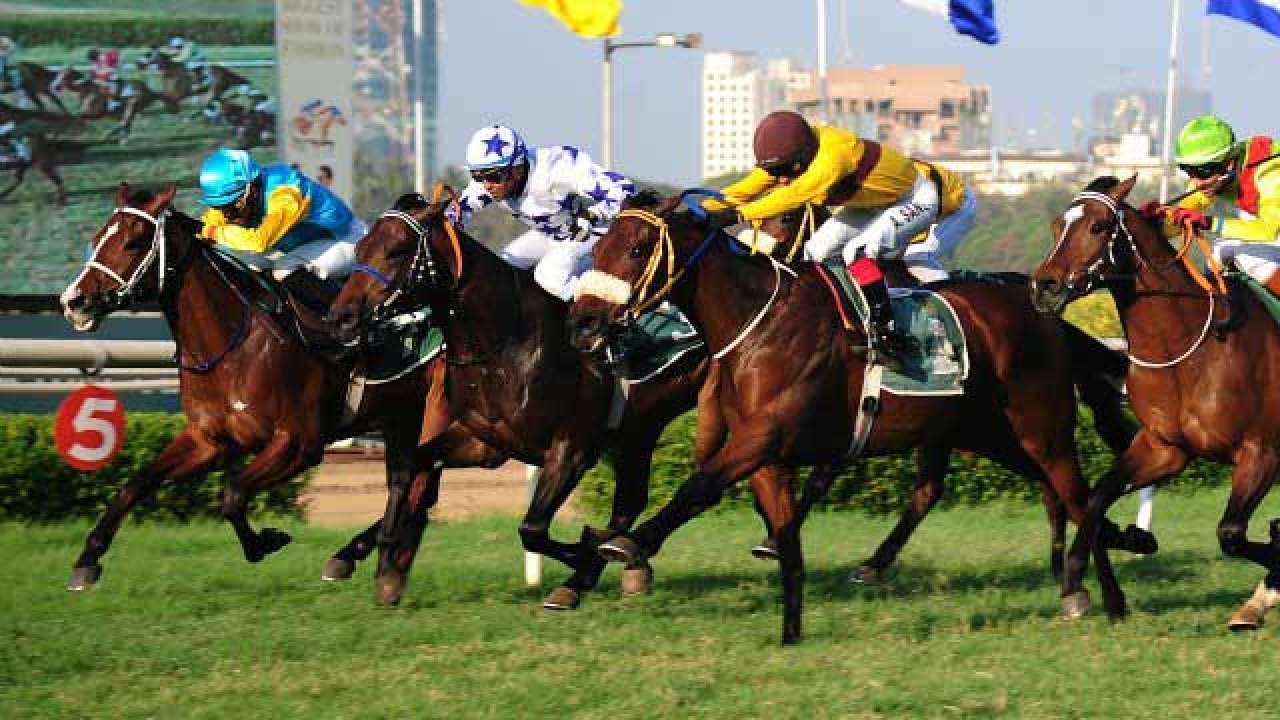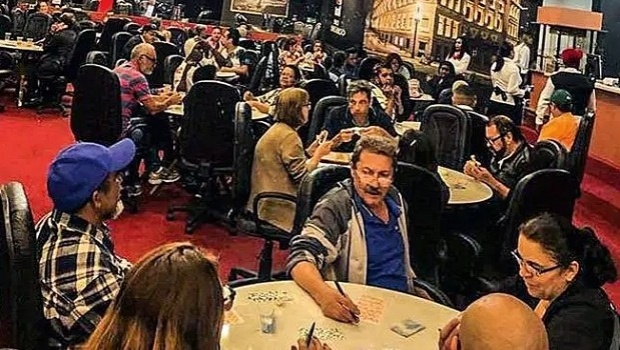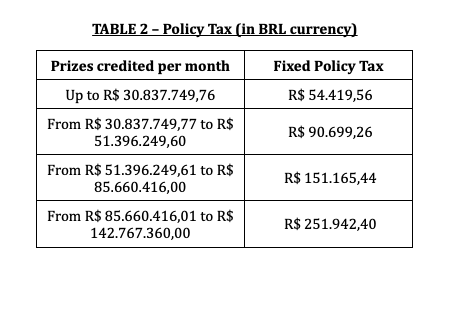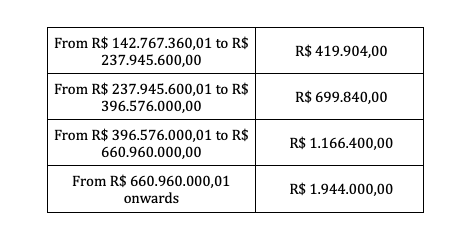Featured
The conundrum of gambling, sports betting & gaming laws: India & Brazil

(This report has been jointly produced by Jaya Suri Phalpher, Managing Partner at Phalpher & Co along with Victor Targino de Araujo, a Gaming Law Specialist from Brazil who has worked in major Brazilian football clubs as Corinthians and Santos FC, and has been a lecturer with experience in many institutions in Brazil and worldwide.
The focus of this report is to put forth the Indian scenario and current tide and going a step further assessing it along with an insight with another country like Brazil which is possibly a step ahead in speeding up its race in finalizing its own betting and gaming regulations.
************************************
The subject of Gambling & Betting Laws in India has always been a sharply debated one. While each state enacts its laws around gambling and tightens or loosens restrictions basis its own factors – political, social, economic, religious there have for decades been two schools of thought (i) the conservative which challenges the existence of gambling and betting activities on grounds of religion, morals and defines them as addictions and harmful vices (ii) the other that challenges the restrictive contentions in the light of economic and revenue generation opportunities and freedom of leisure and sporting participation. Globally as well there is a dual outlook between the conservative and the supporters of regulating the betting and gaming industry however the ever growing “Grey” area needs to be addressed through updated laws and regulations.
With the lack of evolved regulations under the Gambling and Betting head specially with technology and the online interface there is a blatant and glairing overlap across the categories scrambling under the concepts of wagering, gambling, online gaming, betting, game of chance, game of skill, esports, real money gaming etc. to be conveniently used as required to pass off as legitimate and benefit from exemptions from restrictions under existing laws on a case by case and ad hoc basis.
With India forecasting a US$ 1 Billion + market for online gaming in the present year further propelled by the pandemic and lockdown year of 2020 the world including India is keeping a close watch on the International wave hugely deliberating on the topic of regulating betting and gaming activities. On 14th May, 2018, the US Supreme Court in a majority verdict in Murphy (Governor of New Jersey) v. National Collegiate Athletic Association invalidated the Professional and Amateur Sports Protection Act, 1992 (PASPA), a federal legislation that disallowed states to promote, operate, license, authorize or sponsor sports betting. While the United States of America’s federal system and India’s quasi federal system vary in many ways, this landmark judgement has also created a lot of excitement in the industry globally.
In this paper, we look to India’s grey Gambling and Betting scenario along with the movement in Brazil pushing for regulating its betting laws in this year of 2021 and a possible way forward and addressing the Grey.
I – SPORTS BETTING IN INDIA
Ancient Hindu Civilization and literary works of such times state the prevalence of gambling and betting activities, and from the references, namely Ramayana and Mahabharata, it is evident that passion in gambling and betting activities had been one passed down from centuries and generations in India.
Constitution of India
As per The Constitution of India, Betting & Gambling is a State Subject under Schedule 7 List II Item 34 i.e., the power to make laws on the subject lie with the State Government and whereas Lottery is a Union Subject under Seventh Schedule List I Item 40 i.e. power to make laws on the subject lie with the Union Government.
Public Gambling Act, 1867 (PGA)
In general (PGA) is the centerpiece of Gaming Legislations in India. In India Gambling, in general would include (i) acts of betting and wagering – but excluding games of “mere skill” – (ii) lotteries which is covered and regulated as per the central governments Lotteries Regulation Act 1998, and (iii) horse racing in accordance with certain conditions.
Varying Betting Laws
Overall, 14 States / Union Territories have adopted the PGA whereas other states including Delhi, Maharashtra, Gujarat, Andhra Pradesh, Jammu & Kashmir, Meghalaya have their own varying and distinctive legislations.
In 2002 the Haryana Assembly passed two bills Public Gambling (Haryana Amendment) Bill and the Haryana Casino (Licensing & Control) Bill, both reserved for Presidential assent, which was not granted due to dissenting opinions from various State Governments and Government ministries.
Since the PGA law, most of the state enactments came into place prior to the emergence of the “Online Gaming” and while some states are highly restrictive of the betting activities others have made exceptions and some such as Nagaland and Sikkim have even gone as far as enacting Online Gaming Regulations and the Nagaland Act even seeks pan India application by virtue of the territories falling under “Game of Skill” exemption from gambling ambit. Even with regard to casinos, two states i.e. Sikkim and Goa Daman & Diu have enacted laws allowing gambling to a limited extent and under a license at five-star hotels and at offshore vessels in Goa.
Role of Judiciary & Committee Reports
In general, each of these games/activites is at the mercy of their assessment as a game of skill or a game involving preponderance of skill over pure luck or chance which would put them in the clear and they would not attract the restrictions under gambling laws. Therefore, the account of varying laws from state to state and the non-evolution of existing laws have left large scope for interpretation by the Judicial System on a case-by-case basis.
- Rummy - In State of Andhra Pradesh vs. K. Satyanarayana & Ors the game of Rummy was held to be “mainly and preponderantly a game of skill” and the court widened the ambit of “game of mere skill” to mean “preponderantly a game of skill” (“Satyanarayana Case”)
- Horse Racing - Similarly, in 1996 in K.R. Lakshmanan vs. State of Tamil Nadu & Ors horse racing was held to be “preponderantly a game of skill”. (“Lakshmanan Case”)
- Fantasy Sports – In a landmark judgment in 2017 - Varun Gumber v. Union Territory of Chandigarh and Ors. (Dream 11 Case) – The High Court of Punjab and Haryana declared Fantasy Sports to be a game of considerable skill and similarly in Gurdeep Singh Sachar v. Union of India (Gurdeep Singh Case) the High Court of Bombay took no divergent view. Appeals against the former stands were dismissed by the Supreme Court in India and subsequently the High Court of Rajasthan, in the case of Chandresh Sankhla v. State of Rajasthan, relied on the decisions in Dream 11 Case & Gurdeep Singh Case and gave fantasy sports a clean sheet as a game of skill.
- Twist in the Fantasy Story - However in March 2020 in The State of Maharashtra & Ors. Versus Gurdeep Singh Sachar & Ors. The Gurdeep Singh Case order of the Bombay High Court was stayed by the Supreme Court and the debate once again thrown open.
- In 2018, the Law Commission of India, propelled by the court during the proceedings in the case of BCCI V. Cricket Association of Bihar headed by Dr. Justice B.S. Chauhan, Former Judge Supreme Court of India, provided a comprehensive case for regulating betting with a three-pronged strategy: reforming the existing market, regulating illegal gambling, and introducing stringent regulations. Also, the Law Commission provided a 21 point recommendation including amendments, inter alia, to relevant clauses of the Indian Contract Act 1872, the Information Technology Intermediaries Rules 2011, the National Sports Development Code of India 2011, the FEMA 1999, and to the Foreign Direct investment Policy, etc.
 In 1996 in K.R. Lakshmanan vs. State of Tamil Nadu & Ors horse racing was held to be “preponderantly a game of skill” (Source: DNA)
In 1996 in K.R. Lakshmanan vs. State of Tamil Nadu & Ors horse racing was held to be “preponderantly a game of skill” (Source: DNA)
Other Effected(ing) Legislations
- Indian Contract Act 1872, Section 30, which makes void and unenforceable any agreement by way of wager except with regards betting on horse racing.
- Foreign Exchange Management Act 1999, its relevant regulations and the FDI Policy, which in general prohibit the remittance of income from lotteries, sweepstakes, racing as well as investment in lottery, gambling and betting businesses respectively.
- Payment & Settlement System Act 2007 whereby the Reserve Bank of India has been solely empowered to regulate all forms of electronic payment frameworks including drafting of policies for the same which will need to be compulsorily complied with by any payment processor operating in India.
- Prevention of Money Laundering Act, 2002 which expressly covers entities carrying on business of offering game of chance for cash as well as casino activities to comply with and adhere to the Act including maintenance of records.
- The Information Technology Act, 2000 which under its regulations require internet service providers and operators etc. not to be a platform for any content which encourages gambling.
- Cable Television Network Rules 1994 which prohibits advertisement of gambling activities.
- Income Tax Act 1961 which under section 115BB and 194B cover income and revenues from winnings of lotteries, races, betting etc. as taxable.
Year 2020: Unfolding A Movement for a Regulatory Body and Unified Gaming & Betting Code
In 2020, with the arrival of a state of pandemic, emergencies, and lockdowns, cancellation of public and live sporting events the gaming industry came to the rescue of the populations confined, and online gaming was enlisted as one of the 5 booming sectors during Covid 19 and announced the movement and shot in the arm for cries for attention to the gaming and betting laws as is evident from one of the below excerpts and reporting facts:
- According to research group SensorTower, the mobile game market grew 26% last year to $79.6 billion, “an enormous surge in part due to the global pandemic and lockdowns,” said Craig Chapple, a mobile insights strategist at the firm.
- Backed by the Covid-19 pandemic, Asus and MSI saw growth in gaming laptop sales in 2020
- Over the course of the pandemic, there has been a spike in gaming time, with more users moving from freemium to paid gaming apps," Real money gaming apps, which allow players to compete for cash prizes, also reported similar trends. During IPL 2020, the number of fantasy players on Mobile Premier League (MPL) increased more than seven times.
- In Madras High Court in D. Siluvai Venancein July 2020 the court highlighted that a “A comprehensive regulatory framework by a regulatory body is necessary to regulate the online sports and to curb any illegal activities as well. In fact, such regulation of online sports would encourage investment in the sector, which could lead to technological advancements as well as generation of revenue and employment” …” and further stated that “This Court is not against the virtual games, but, the anguish of this Court is that there should be a regulatory body to monitor and regulate the legal gaming activities, be it in the real world or the virtual world...”
- In July 2020, the Karnataka State Government gave in-principal approval to Bangalore Turf Club (BTC) to conduct online betting. And the club envisioned to develop a mobile application where punters can place bets on races and receive dividends through a digital wallet. However, the same was questioned by the States High Court in C Gopal v. State of Karnataka and ors
- In September 2020, the State of Andhra Pradesh passed a bill to amend the State Law, and Andhra Pradesh cabinet approved a proposal to amend Andhra Pradesh Gaming Act, 1974, to ban online games such as rummy and poker that involve money transactions. Shortly after in November 2020 the State of Tamil Nadu banned online gaming by passing the Tamil Nadu Gaming and Police Laws (Amendment) Ordinance, 2020 and included Section 3A, which states that, "No person shall wager or bet in cyberspace using computers, computer system, computer network, computer resource, any communication device or any other instrument of gaming by playing rummy, poker or any other game."
- In December 2020, Niti (National Institution for Transforming India) Aayog – premier policy ‘Think Tank’ of the Government of India, in a milestone move boosted the fantasy gaming industry by issuing a draft set of regulations named Guiding Principles for the Uniform National-Level Regulation of Online Fantasy Sports Platforms in India (“Draft Regulations”), and recommended setting up a self-regulatory body. The Draft Regulations focus on skill based fantasy sports in close emulation or related to a officially sanctioned sporting event and not chance based and amongst others provide for:
- A Self-Regulatory Body recognized by the Government of India.
- Operators would be required to be in compliance with applicable laws and advertisement standards.
- Operators shall not offer services to minors (under 18 years) or announce assured/guaranteed winnings.
- States to de-criminalize/ immunize compliant fantasy sports contests.
- An independent Monitoring body to oversee compliance, an independent grievance redressal mechanism, and an independent evaluation committee to provide approvals and set rules.
The Centre is yet to comment on the recommendations and the industry experts also have moved in furtherance and provided their comments to the guidelines and the effort by Niti Aayog and recommended the Draft Regulations cover not just subset of fantasy gaming but also the larger space of Online Skill Gaming Industry.
- With Effect from 15th December 2020 under advisory from the Ministry of Information and Broadcasting, the Advertising Standards Council of India issued guidelines for all broadcasters concerning advertisements of online gaming, fantasy sports, etc., to correctly convey the risks of such activities in conformity with the advertising codes under the Cable Television Network Act and the Consumer protection act 2019 and not to advertise any activities prohibited by law.
- At the same time in December 2020, the General Assembly of the Olympic Council of Asia and esports was approved to be included in the 2022 Hangzhou Asian Games thereby adding a fillip to the case for uniform guidelines concerning eSports as well.
II – SPORTS BETTING IN BRAZIL
Timeline
- 1934: Presidential Decree was passed allowing sports betting on horse racing (only inside horse racing tracks) to promote the horse-breeding in the country.
- 1941: Unauthorized exploitation of gaming, including sports betting, is considered a minor criminal offence (misdemeanor).
- 1946: General prohibition of gaming by Presidential Decree no. 9.215 of 30 April. Religious and morality purposes invoked to justify the prohibition. New Constitution was passed in September.
- 1956: Bill passed in Congress regulating sports betting on horse racing.
- 1969: Creation of the “Sports Lottery” by Presidential Decree. Exploration granted to Federal Government Bank, Caixa Economica, on an exclusive basis.
- 1984: New sports betting law regulating sports betting on horse racing. (Only on horse racing tracks or on branches related to horse racing governing bodies.)
- 1993: Saw the reopening of bingo houses (a regional type of gaming houses with bingo being the most prominent game). Part of the revenue was dedicated to sports clubs and federations. New regulation introduced in 1998 (Law no. 9.615, of March).
- 2000: re-prohibition of bingo houses by the Congress (Law no. 9.981, of July).
- 2018: Law no. 13.756, of December passed in Congress. Articles 29 to 35 allow the exploitation of fixed-odds sports betting, including online, conditioned to a regulatory framework to be presented by the government by Decree.
- 2021: The Government’s fixed-odds betting regulatory framework is expected to be issued by June. Online sports betting companies based outside Brazil are operating and advertising without any concern in major sports events, clubs and broadcasters.
 bingo houses - a regional type of gaming houses with bingo being the most prominent game. (Source: Games Magazine Brasil)
bingo houses - a regional type of gaming houses with bingo being the most prominent game. (Source: Games Magazine Brasil)
Brazil Law No. 13.756 lays down Guidelines for Fixed-odds Betting Regulations
The Law no. 13.756 (“Brazil Law”), of December 2018, incorporated mandatory guidelines (Articles 29-35) to be respected and complied with by the Ministry of Economy (Government) developing the fixed-odds sport betting regulatory framework around betting which was to be enacted by the Ministry of Economy (“Regulations”). Accordingly, an overview of the Brazil Law guidelines would project the below
- The Regulations on Fixed-odds Betting would be applicable in sports events only.
- The Brazil Law fictionally equaled the fixed-odds sports betting to lotteries, despite the conceptual distinction between them,, and rendered it the status as a public service to be delegated by the Federal Government to private operators via
- Concession or
- Authorization.
- The concession model will be the most probable option given the possibility to fill the blank points not addressed in the Brazil Law, and eventually the upcoming Regulations, with adjustments done in the concession contracts to be entered between the Federal Government and the operator (as well the possibility to enact penalty clauses for those operators who did not comply with the law, the regulations and the clauses established in the contract).
- The requisites to the concession or authorization (e.g., minimum shares capital; limitations to foreign shareholders, etc) are expected to be detailed in the upcoming regulatory Decree.
- Online or not, the sport event to be exploited must be “real”, thus forbidding sports betting on machine’s or fictional software’s events.
- It is not clear in the Brazil Law if betting exchanges (e.g. Betfair) or skin gambling are allowed or not, therefore that discussion remains open depending on the upcoming Regulations.
- With regard to E Sports it is reasonable to argue that organized eSports competitions should have equal treatment as a sport, thus being subject to fixed-odds sports betting exploitation as a real sport event.
- Taxes and profit margins are indicated in the Brazil Law to be provided for in the Regulations as are detailed in the law (see table 1 below, which distinguishes the taxation between local and online operators) and often criticized by experts for, at least, two reasons:
- Excessive Taxation over the Winning Customer (taxed in Federal IRS on a 30% basis over the prize won) – the regulation shall detail if the tax is applied over the total amount returned from the bet or only over the “profit” won (winning), being the latter the most reasonable choice; also, the timing of the tax incidence is subject of questioning: should the online operator deduct the tax over the amount to be credited in the virtual wallet of the player? Or only when the player chooses to withdraw the amount in his virtual wallet?
(ii) Taxation on the sports betting houses over the turnover instead the gross gaming revenue.
- In addition to the aforementioned taxes, the operator is also subject to a policy tax destined to the Federal Government to be progressively applied according to the prize shared with bettors (see table 2, below).
- It is expected in the upcoming regulations to forbid the advertisement of unauthorized operators, but the law only disciplines that advertisement should be directed by the “best practices of corporate social responsibility”. Nevertheless, the ad market in Brazil is subject to the regulations of CONAR, a non-profit private organization that is expected to policy and sanction the abuse in propaganda, especially in a market that advertises a potentially addictive product such as betting.
- In the Brazil Law there is a lack of dispositions of responsible gaming, such as preventing minors, adopting measures to prevent or reduce the damages from gaming addiction, as well to prevent and sanction match-fixing, for example. In spite of this, Mariana Chamelette explains that match-fixing is already a crime in Brazil and is also subject to sports sanctions under the Brazilian Sports Justice Code.
- The article 35 of the Brazil Law draws the attention to criminal activities related to money laundering or terrorism funding, obligating the operator to give information about the betters to the Council of Control in Financial Activities (COAF), a public organ bonded to the Central Bank of Brazil. The level of information to be provided is uncertain, depending on the upcoming regulations.
- However, the Brazil Law still lacks sanctions or measures, like fines or license revocation, to prevent misconduct, tax fraud, or abuses by the authorized operators, for example, which would bring the need for a specific ruling in each concession contract.
- It is not clear under the law whoever will be in charge to oversee the legal operations in sports-betting, presumably the Ministry of Economy (the successor of the now defunct Ministry of Public Funding, which was mentioned in the law). The creation of an Agency, focused and specialized in gaming, which would be much more effective (in theory) was suggested long ago by the present co-author, Victor Targino, in scientific articles regarding a future regulation of casinos and gaming in Brazil (which is still forbidden), as an example of other countries and states (Portugal, Malta, Nevada - US) but this does not seems to be under the actual government agenda.
- It was revealed that the Brazilian Government is seeking to grant only 30 (thirty) concessions to operators in the whole country. Such limitation, if passed, will not only be prejudicial to the market, opening room for clandestine operators in a continental country as Brazil as well should represent an offence to the Brazilian Constitution in the antitrust point of view.
To conclude: KPMG consulting presented a study estimating a gross revenue of USD 2,1 Billion in fixed-odds sports-betting market, per year, after the upcoming regulations.
Tax and Profit Tables on Future Fixed-Odds Sports Betting Operators in Brazil
TABLE 1
 In summary:
In summary:
- Local booth total taxes to be collected from the turnover: 6%.
- Local booth maximum gross gaming revenue from turnover: 14%.
- Online total taxes to be collected from the turnover: 3%.
- Online maximum gross gaming revenue from turnover: 8%.


III – CONCLUSION
The long-awaited regulation of fixed-odds sports betting in Brazil is expected to occur until June 2021 (almost 3 years after the bill passed in Congress).
Despite the impreciseness of the Brazilian law – which the upcoming regulatory framework is expected to fix mostly –, the regulation of the sector is much expected and is a great step towards the de-prohibition of other gaming products. The competition shall not be ignored, but promoted, not only in defence of the consumer but in favor of a better and well-developed product in the near future, stimulating the economy, especially after a year affected by an unprecedented pandemic.
Also, it is expected a major contribution from the stakeholders and experts of the sector in favor of the evolution of the legal and regulatory framework with their worldwide expertise in shaping a profitable and well-succeeded product, bearing in mind that Brazil mostly ignored the gambling industry since the 1940s.
Nevertheless, sports-betting will be (much more than already is with overseas online operators injecting money in sports clubs and competitions) an important source of revenue to the whole sports industry in Brazil, not only with the “image tax” controversially imposed by the law exclusively in favor of the Football Clubs, but bringing earnings from sponsorships, advertisements, events, royalties, and most important, creating jobs.
While in Brazil the Government ponders over the proposed fixed-odds framework in India as well the force and ripples caused especially during this Pandemic calendar have huddled the stakeholders, government agencies industry experts, legal experts in areas of gaming, betting. gambling on a loud call for a unified regulatory framework and guidelines for betting laws and propelled to speed by the Draft Regulations proposed by Niti Aayog for Online Fantasy Sports as an affirmative expression of consideration and recognition of a pressing and overlapping subject placed on the Government agenda.
Overall the need of the hour would be for the Central Government to provide umbrella and basic guidelines to create a framework to:
- Categorize & Define - lay basic standards for various activities of Gambling, Betting, Gaming including Real Money Gaming, E Sports, other Games of Skill,
- Regularize,
- Authorize,
- Penalize.
The industry has gained momentum and pitched itself as a booming as well as a precariously positioned sector with great potential in generating revenues, employment, investments, tourism, etc., and is beckoning a Regulatory Framework to balance out the contentions of the two schools of thoughts and address the grey and to grasp the industry potential with check and balances and amended and up to speed legislation in the areas of contracts, tax, service providers, payment operators, information technology, money laundering as well as investments amongst others.
To download the article click here.






